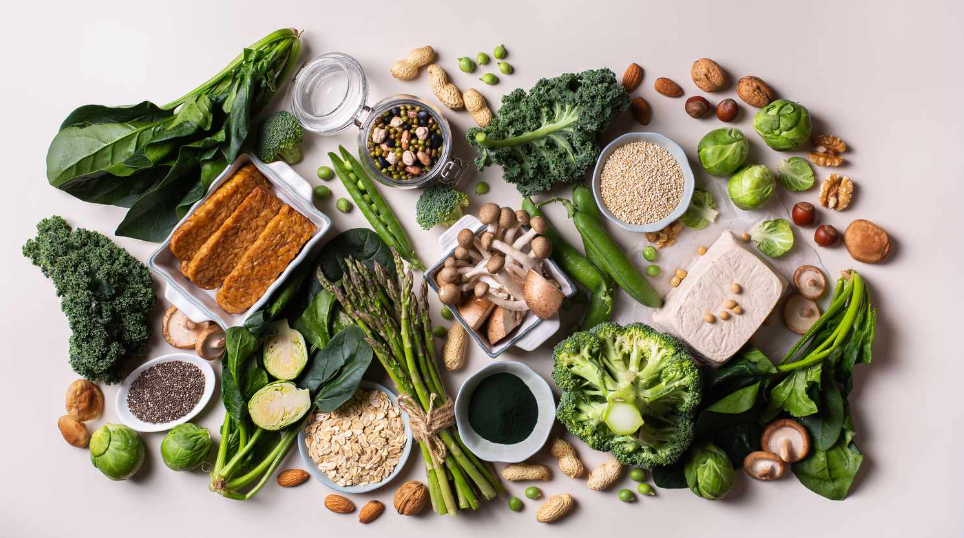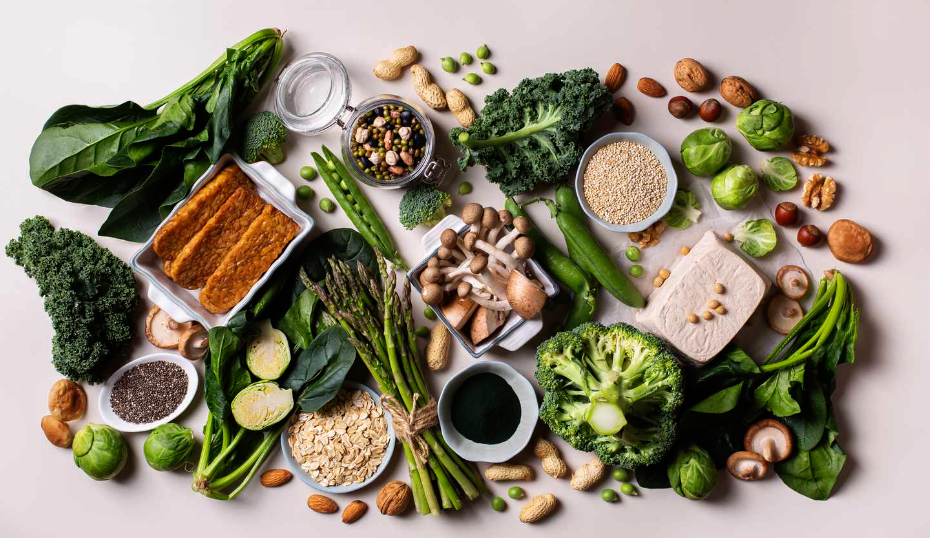In the realm of nutrition, few attributes are as prized as protein and fiber. These macronutrients not only play crucial roles in maintaining overall health but also contribute significantly to weight management, muscle building, and digestive health. Incorporating foods rich in both protein and fiber into your diet can elevate your nutritional intake and enhance your well-being. Here, we unveil the 12 best high-protein, high-fiber foods that deserve a prominent place on your plate.

- Lentils:
Lentils are nutritional powerhouses, boasting an impressive combination of protein and fiber. These legumes pack around 18 grams of protein and 15 grams of fiber per cooked cup, making them an excellent choice for vegetarians and vegans looking to meet their protein needs while promoting digestive health.
- Chickpeas:
Chickpeas, also known as garbanzo beans, are versatile legumes celebrated for their nutritional density. A cup of cooked chickpeas contains approximately 15 grams of protein and 12 grams of fiber, making them a satiating addition to salads, soups, and curries.
- Quinoa:
Quinoa is a gluten-free grain that stands out for its complete protein profile and fiber content. With about 8 grams of protein and 5 grams of fiber per cooked cup, quinoa offers a wholesome alternative to traditional grains, elevating the nutritional value of your meals.
- Black Beans:
Black beans are revered for their rich flavor and nutritional benefits. One cooked cup of black beans delivers approximately 15 grams of protein and 15 grams of fiber, making them an excellent choice for enhancing both protein intake and digestive regularity.
- Chia Seeds:
Chia seeds are tiny nutritional powerhouses packed with protein, fiber, and essential omega-3 fatty acids. Just two tablespoons of chia seeds provide around 4 grams of protein and 11 grams of fiber, making them a convenient addition to smoothies, oatmeal, and baked goods.
- Almonds:
Almonds are not only a delicious snack but also a source of plant-based protein and dietary fiber. A quarter cup of almonds contains approximately 8 grams of protein and 5 grams of fiber, making them a satisfying option for curbing hunger and promoting heart health.
- Greek Yogurt:
Greek yogurt is renowned for its high protein content and probiotic properties. A single serving of Greek yogurt typically contains around 20 grams of protein and 2 grams of fiber, making it an ideal choice for supporting muscle recovery and gut health.
- Edamame:
Edamame, or young soybeans, are a nutrient-dense snack rich in both protein and fiber. A cup of cooked edamame provides approximately 17 grams of protein and 8 grams of fiber, making it a wholesome option for satisfying hunger cravings while nourishing your body.
- Oats:
Oats are a staple in many diets, prized for their fiber-rich composition and versatility. A cooked cup of oats delivers around 6 grams of protein and 4 grams of fiber, making them a hearty breakfast option that promotes satiety and digestive health.
- Broccoli:
Broccoli is a cruciferous vegetable revered for its nutritional density and fiber content. A cooked cup of broccoli contains approximately 3 grams of protein and 5 grams of fiber, making it a valuable addition to any meal for promoting overall health and well-being.
- Tofu:
Tofu, derived from soybeans, is a versatile plant-based protein source rich in fiber and essential amino acids. A half-cup serving of tofu provides around 10 grams of protein and 2 grams of fiber, making it a valuable ingredient in vegetarian and vegan dishes.
- Hemp Seeds:
Hemp seeds are nutrient-dense seeds renowned for their protein, fiber, and omega-3 fatty acid content. Just three tablespoons of hemp seeds offer approximately 10 grams of protein and 3 grams of fiber, making them a nutritious addition to salads, smoothies, and baked goods.
Conclusion:
Incorporating high-protein, high-fiber foods into your diet is essential for optimizing your nutritional intake and promoting overall health and well-being. From legumes and grains to nuts and seeds, the 12 foods listed above offer a diverse array of options to suit various dietary preferences and culinary tastes. By prioritizing these nutrient-rich foods, you can embark on a journey towards enhanced vitality, satiety, and digestive wellness, unlocking the transformative power of nutrition in your daily life.
